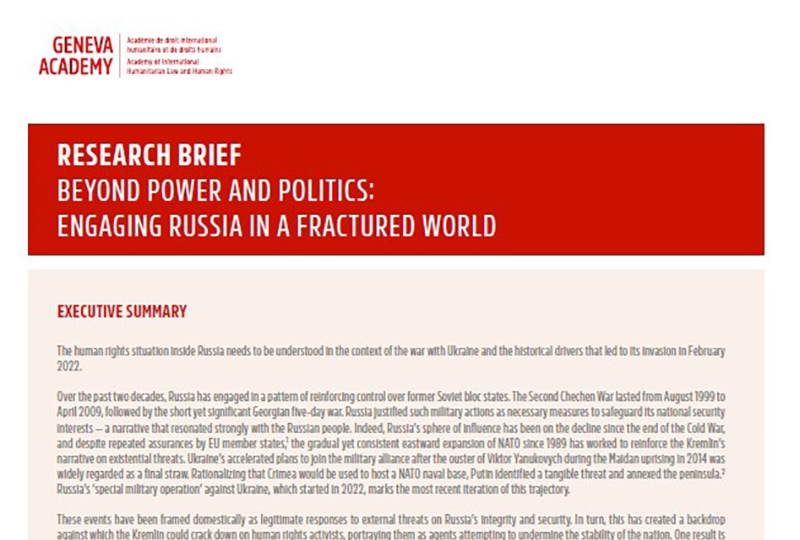16 September 2024
In our latest research brief, 'Beyond Power and Politics: Engaging Russia in a Fractured Multilateral Order', Robin van der Lugt and Chhime Sherpa examine the role of and pathways towards accountability for Russia’s human rights violations.
A key argument in the research is that the international community’s traditional — and often overly idealistic — approaches to accountability may not be effective in the current geopolitical climate. Robin van der Lugt elaborates, 'While sanctions and legal actions may be justified and seem efficient, they may, in fact, reinforce perceptions of Western hostility and have little impact on changing Russia’s behaviour or promoting sustainable peace. Attempting to socialize antagonistic — and, most importantly, powerful — states is futile if the drivers of non-compliance remain underexplored.'
The authors argue that any approach must view the current human rights situation in Russia through the lens of its war with Ukraine and the historical context leading up to the 2022 invasion. Moreover, the pursuit of accountability for Russia’s human rights violations must be reimagined within a broader strategic framework. This requires acknowledging the interplay of geopolitics, narrative control, and the current shifting global order. Moving beyond exclusionary practices would create space for more innovative engagement that combines legal, diplomatic, and grassroots initiatives to advance human rights and foster sustainable peace.
Erica Harper, Head of Research and Policy Studies elaborated, 'The report explains that where the West really needs to do better is in fighting the narrative war. This will not end the conflict in Ukraine, nor will it solve the human rights situation inside and outside Russia. But it may delay the decline of multilateralism until the system can reconfigure itself in a way that has the confidence of member states, integrates workable peace and security arrangements, and promotes human rights.'







